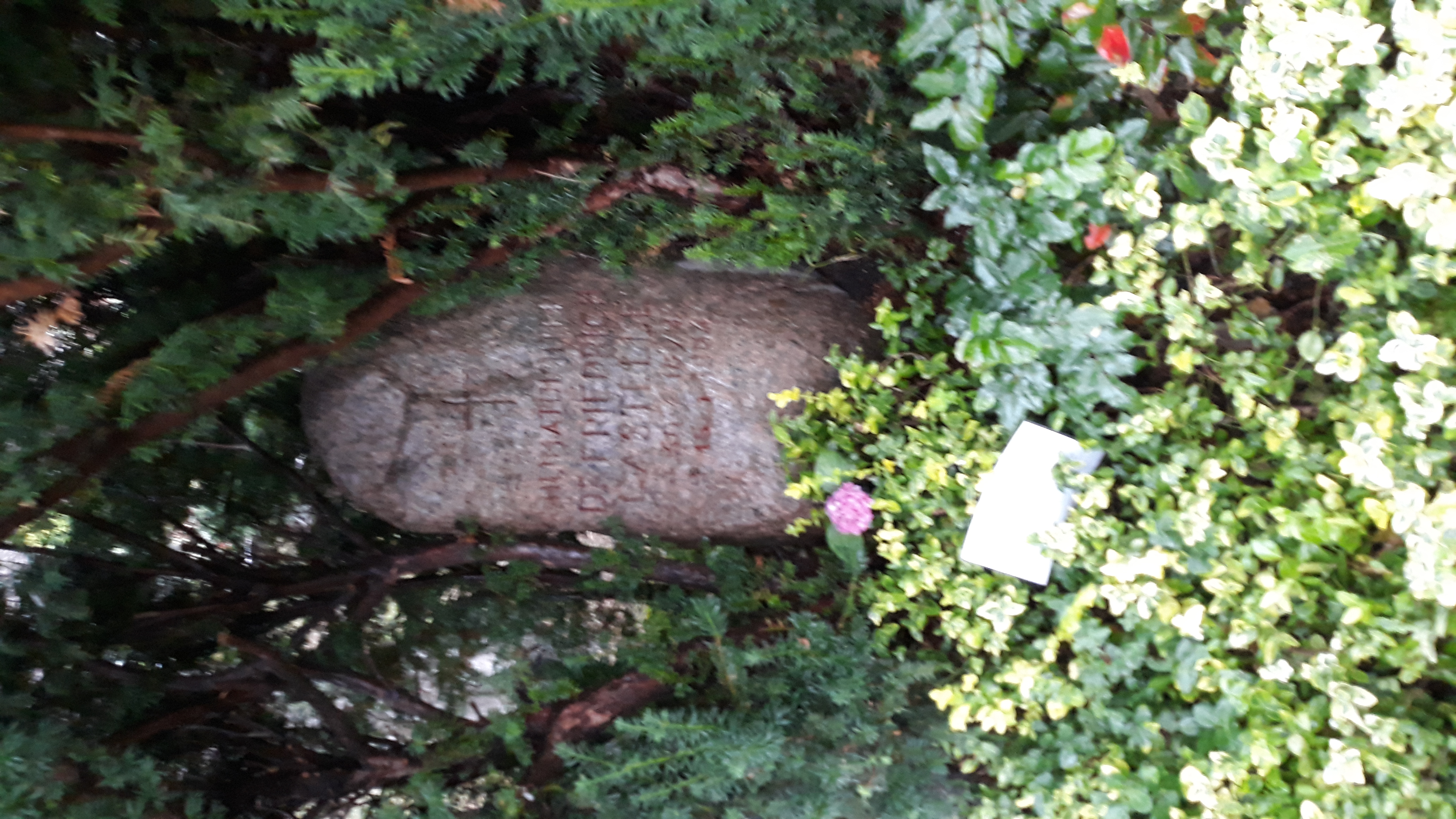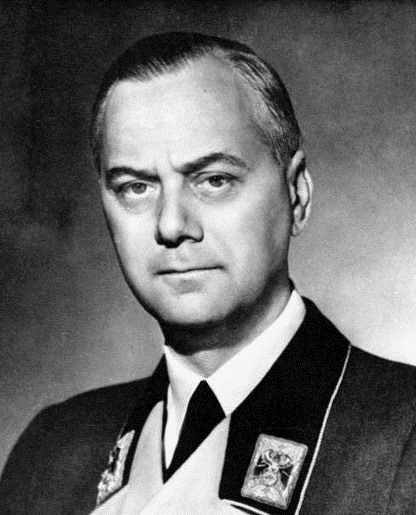|
Friedrich Castelle
Friedrich Castelle (also known as Hans Dietmar, Fritz von Schonebeck or Hans Uhlenbrock; 30 April 1879 – 15 January 1954), was a Völkischer Nationalismus (Völkischer Nationalism, a German ethnic and nationalist movement) journalist and writer and party member of the NS regime. Life Born in , Castelle was the son of a merchant who came from a French immigrant family. Castelle attended the Gymnasium in Münster and then studied philosophy at the Westfälische Wilhelms-Universität. From 1900 to 1904, he worked as a journalist in Aschaffenburg, Aachen, and other places. From 1904 to 1911, he was a member of the editorial office of the ''Münsterischer Anzeiger''. In 1906, he was awarded a doctorate in philosophy at the University of Münster with a dissertation on Joseph von Eichendorff. In addition to his journalistic work, he wrote novels, short stories, biographies, poems and radio plays, and edited Westphalia and Low German writers. From 1912 to 1915, Castelle direc ... [...More Info...] [...Related Items...] OR: [Wikipedia] [Google] [Baidu] |
Völkisch Movement
The ''Völkisch'' movement (german: Völkische Bewegung; alternative en, Folkist Movement) was a German ethno-nationalist movement active from the late 19th century through to the Nazi era, with remnants in the Federal Republic of Germany afterwards. Erected on the idea of " blood and soil", inspired by the one-body-metaphor (''Volkskörper'', "ethnic body"; literally "body of the people"), and by the idea of naturally grown communities in unity, it was characterized by organicism, racialism, populism, agrarianism, romantic nationalism and – as a consequence of a growing exclusive and ethnic connotation – by antisemitism from the 1900s onward. ''Völkisch'' nationalists generally considered the Jews to be an "alien people" who belonged to a different ''Volk'' ("race" or "folk") from the Germans. The ''Völkisch'' movement was not a homogeneous set of beliefs, but rather a "variegated sub-culture" that rose in opposition to the socio-cultural changes of modernity. The ... [...More Info...] [...Related Items...] OR: [Wikipedia] [Google] [Baidu] |
Broadcasting
Broadcasting is the distribution of audio or video content to a dispersed audience via any electronic mass communications medium, but typically one using the electromagnetic spectrum (radio waves), in a one-to-many model. Broadcasting began with AM radio, which came into popular use around 1920 with the spread of vacuum tube radio transmitters and receivers. Before this, all forms of electronic communication (early radio, telephone, and telegraph) were one-to-one, with the message intended for a single recipient. The term ''broadcasting'' evolved from its use as the agricultural method of sowing seeds in a field by casting them broadly about. It was later adopted for describing the widespread distribution of information by printed materials or by telegraph. Examples applying it to "one-to-many" radio transmissions of an individual station to multiple listeners appeared as early as 1898. Over the air broadcasting is usually associated with radio and television, thou ... [...More Info...] [...Related Items...] OR: [Wikipedia] [Google] [Baidu] |
Radio Luxembourg
Radio Luxembourg was a multilingual commercial broadcaster in Luxembourg. It is known in most non-English languages as RTL (for Radio Television Luxembourg). The English-language service of Radio Luxembourg began in 1933 as one of the earliest commercial radio stations broadcasting to the UK and Ireland. The station provided a way to circumvent British legislation which until 1973 gave the BBC a monopoly of radio broadcasting on UK territory and prohibited all forms of advertising over the domestic radio spectrum. It boasted the most powerful privately owned transmitter in Europe (200 kW, broadcasting on medium wave). In the late 1930s, and again in the 1950s and 1960s, it had large audiences in Britain and Ireland with its programmes of popular entertainment, and was an important forerunner of pirate radio and modern commercial radio in the United Kingdom. Radio Luxembourg's parent company, RTL Group, continued its involvement in broadcasts to a UK audience with the Brit ... [...More Info...] [...Related Items...] OR: [Wikipedia] [Google] [Baidu] |
Westdeutscher Rundfunk Köln
Westdeutscher Rundfunk Köln (''West German Broadcasting Cologne''; WDR, ) is a German public-broadcasting institution based in the Federal State of North Rhine-Westphalia with its main office in Cologne. WDR is a constituent member of the consortium of German public-broadcasting institutions, ARD. As well as contributing to the output of the national television channel ''Das Erste'', WDR produces the regional television service WDR Fernsehen (formerly known as WDF and West3) and six regional radio networks. History Origins The Westdeutsche Funkstunde AG (WEFAG) was established on 15 September 1924. There was a substantial purge of left wing staff following the Nazi seizure of power in 1933. This included Ernst Hardt, Hans Stein and Walter Stern. WDR was created in 1955, when Nordwestdeutscher Rundfunk (NWDR) was split into Norddeutscher Rundfunk (NDR) – covering Lower Saxony, Schleswig-Holstein, and Hamburg – and Westdeutscher Rundfunk, responsible for N ... [...More Info...] [...Related Items...] OR: [Wikipedia] [Google] [Baidu] |
Blut Und Boden
Atrocity is a German heavy metal band from Ludwigsburg that formed in 1985. History First started in 1985 as Instigators and playing grindcore, Atrocity arose as a death metal band with their debut EP, ''Blue Blood'', in 1989, followed soon by ''Hallucinations'', a concept album about drug use. Their second album, '' Todessehnsucht'' ("longing for death"), ventured into death metal classics with a cover of "Archangel" by the band Death. Their musical scope broadened over the years, incorporating medieval and horror influences on their 1994 Dracula-based concept album ''Atrocity's Blut'', (styled after the successful film '' Bram Stoker's Dracula''). ''Atrocity's Blut'' was followed by ''Calling the Rain'', an MCD with female vocals by guest singer Yasmin Krull and acoustic music. The 1996 release ''Willenskraft'' introduced industrial elements, with the special bonus CD of the album's special edition (''Kraft und Wille'') including electronic remixes of the songs. The later rel ... [...More Info...] [...Related Items...] OR: [Wikipedia] [Google] [Baidu] |
Alfred Rosenberg
Alfred Ernst Rosenberg ( – 16 October 1946) was a Baltic German Nazi theorist and ideologue. Rosenberg was first introduced to Adolf Hitler by Dietrich Eckart and he held several important posts in the Nazi government. He was the head of the NSDAP Office of Foreign Affairs during the entire rule of Nazi Germany (1933–1945), and led Amt Rosenberg ("Rosenberg's bureau"), an official Nazi body for cultural policy and surveillance, between 1934 and 1945. During World War II, Rosenberg was the head of the Reich Ministry for the Occupied Eastern Territories (1941–1945). After the war, he was convicted of crimes against peace; planning, initiating and waging wars of aggression; war crimes; and crimes against humanity at the Nuremberg trials in 1946. He was sentenced to death and executed on 16 October 1946. The author of a seminal work of Nazi ideology, '' The Myth of the Twentieth Century'' (1930), Rosenberg is considered one of the main authors of key Nazi ide ... [...More Info...] [...Related Items...] OR: [Wikipedia] [Google] [Baidu] |
Nazis
Nazism ( ; german: Nazismus), the common name in English for National Socialism (german: Nationalsozialismus, ), is the far-right politics, far-right Totalitarianism, totalitarian political ideology and practices associated with Adolf Hitler and the Nazi Party (NSDAP) in Nazi Germany. During Hitler's rise to power in 1930s Europe, it was frequently referred to as Hitlerism (german: Hitlerfaschismus). The later related term "neo-Nazism" is applied to other far-right groups with similar ideas which formed after the Second World War. Nazism is a form of fascism, with disdain for liberal democracy and the parliamentary system. It incorporates a dictatorship, fervent antisemitism, anti-communism, scientific racism, and the use of eugenics into its creed. Its extreme nationalism originated in pan-Germanism and the ethno-nationalist ''Völkisch movement, Völkisch'' movement which had been a prominent aspect of German nationalism since the late 19th century, and it was strongly i ... [...More Info...] [...Related Items...] OR: [Wikipedia] [Google] [Baidu] |
Machtergreifung
Adolf Hitler's rise to power began in the newly established Weimar Republic in September 1919 when Hitler joined the '' Deutsche Arbeiterpartei'' (DAP; German Workers' Party). He rose to a place of prominence in the early years of the party. Being one of its best speakers, he was made the party leader after he threatened to otherwise leave. In 1920, the DAP renamed itself to the ''Nationalsozialistische Deutsche Arbeiterpartei'' – NSDAP (National Socialist German Workers' Party, commonly known as the Nazi Party). Hitler chose this name to win over German workers. Despite the NSDAP being a right-wing party, it had many anti-capitalist and anti-bourgeois elements. Hitler later initiated a purge of these elements and reaffirmed the Nazi Party's pro-business stance. By 1922 Hitler's control over the party was unchallenged. In 1923, Hitler and his supporters attempted a coup to remove the government via force. This seminal event was later called the Beer Hall Putsch. Upon its fa ... [...More Info...] [...Related Items...] OR: [Wikipedia] [Google] [Baidu] |
SA-Mann
''Mann'' ( en, "man" or "male"), was a paramilitary rank used by several Nazi Party paramilitary organizations between 1925 and 1945. The rank is most often associated with the ''Schutzstaffel'' (''SS-Mann''), but also was a rank of the SA, where ''Mann'' (''SA-Mann'') was the lowest enlisted rank and was the equivalent of a private. In 1938, with the rise of the ''SS-Verfügungstruppe'' (later renamed the Waffen-SS), the SS changed the rank of ''Mann'' to ''Schütze'', although it still retained the original SS rank of ''Mann'' for the ''Allgemeine-SS'' (general SS). The rank of ''Mann'' was junior to SS-''Sturmmann''. In most Nazi Party organizations, the rank of ''Mann'' held no distinctive insignia. Some groups, however, granted a minor form of rank insignia such as a blank collar patch or simple shoulder board to denote the rank of ''Mann''. (see right: SS rank insignia pattern from 1933) Even lower ranks, e.g. ''Bewerber, Jungmann, Anwärter, Vollanwärter'', were estab ... [...More Info...] [...Related Items...] OR: [Wikipedia] [Google] [Baidu] |
Horst Wessel
Horst Ludwig Georg Erich Wessel (9 October 1907 – 23 February 1930) was a Berlin ''Sturmführer'' ("Assault Leader", the lowest commissioned officer rank) of the ''Sturmabteilung'' (SA), the Nazi Party's stormtroopers. After his killing in 1930, he was made into a martyr for the Nazi cause by Joseph Goebbels. Wessel first joined a number of youth groups and extreme right-wing paramilitary groups, but later resigned from them and joined the SA, the brownshirted street-fighting stormtroopers of the Nazi Party. He rose to command several SA squads and districts. On 14 January 1930, he was shot in the head by two members of the Communist Party of Germany (KPD). Albrecht Höhler, Albrecht "Ali" Höhler was arrested and charged with his murder. Höhler was initially sentenced to six years in prison, but was forcibly taken out of jail and killed by the SA after the Nazis came to power. Wessel's funeral was given wide attention in Berlin, with many of the Nazi elite in attendance. A ... [...More Info...] [...Related Items...] OR: [Wikipedia] [Google] [Baidu] |
Der Türmer
''Der Türmer. Monatsschrift für Gemüt und Geist'' was the name of a national conservative, Protestant cultural journal, which appeared first in Stuttgart and then in Berlin from 1898 to 1943 and was published for a long time by the Baltic German writer , who lived in Bad Oeynhausen. The name was intended to refer to the tower keeper from Faust, Part Two: "Zum Sehen geboren, zum Schauen bestellt." (Born to see, ordered to look.) History The journal sought to give a view of the entire intellectual and social culture of the present day; since 1902 the "Türmer-Jahrbuch" (Türmer Yearbook) had been published alongside. Grotthuß made ''der Türmer'' a central cultural and political medium of the Wilhelminian period. From 3000 (in 1899), the number of copies printed per month climbed to 17,500. In the section "Türmers Tagebuch" Grotthuß attacked the social democracy, court nobility, money aristocracy and industry, which he accused of "Byzantinism", and "political eunuchy". I ... [...More Info...] [...Related Items...] OR: [Wikipedia] [Google] [Baidu] |





